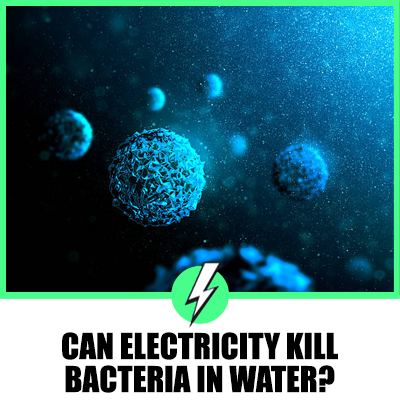Can Electricity Kill Bacteria in Water? A Comprehensive Guide for UK and US Audiences
Water purification is a critical aspect of ensuring public health.
Traditional methods involve the use of chemicals, filtration, and sometimes UV light.
But what about electricity?
Can it be a viable method to kill bacteria in water?
Let’s dive deep into this electrifying topic.

Contents
Can Bacteria be Killed by Electricity?
Yes, bacteria can be killed by electricity.
The process, known as electroporation, involves using short pulses of high voltage to puncture holes in the cell membranes of bacteria.
Once the cell membrane is compromised, the bacteria can no longer maintain its internal environment, leading to its death.
Methods to Kill Bacteria in Water
| Method | Effectiveness | Notes |
|---|---|---|
| Boiling | High | Kills most bacteria, viruses, and parasites when water is boiled for at least one minute. |
| Chlorination | High | Disinfects water but might leave a residual taste. |
| UV Radiation | High | Kills bacteria by damaging their DNA. |
| Filtration | Varies (based on filter type) | Uses filters with tiny pores that physically remove bacteria. |
| Electroporation | High (for certain bacteria) | Uses short pulses of high voltage to puncture bacterial cell membranes. |
| Electrolysis | High | Produces reactive oxygen species lethal to bacteria and viruses; can rupture bacterial cells. |
This table provides a quick reference to the various methods discussed in the article and their effectiveness in killing bacteria in water.
Can Electricity Kill Infection?
Electricity can kill bacteria, which are often the cause of infections.
Recent studies have shown that weak electric currents could be used to tackle antibiotic-resistant bacterial infections.
However, the application of electricity for such purposes in medical settings is still in its infancy and requires further research.
How Many Volts Does it Take to Kill Bacteria?
The exact voltage required to kill bacteria varies depending on the type of bacteria and the conditions.
However, studies have shown that even ultra-low voltages can be effective.
For instance, a study from the University of Arkansas found that voltages as low as 2.5V can kill bacteria like E. coli.
Does Electrical Current Sent Through Water Kill Bacteria and Viruses?
Yes, sending an electrical current through water can kill both bacteria and viruses.
The process, known as electrolysis, can produce reactive oxygen species that are lethal to bacteria and viruses.
Moreover, the electric field itself can rupture bacterial cell membranes.
Can Electricity Kill Microorganisms?
Electricity can indeed kill microorganisms, including bacteria, viruses, and some protozoa.
The effectiveness of electricity in killing these microorganisms depends on several factors, including the type of microorganism, the strength of the electric field, and the duration of exposure.
Insights from Online Discussions:
- BioRxiv Study: Discussed the potential of using electric fields to inactivate airborne viruses. The results were promising, indicating that electricity might be a viable method for air purification.
- University of Arkansas Research: Confirmed that ultra-low voltage can effectively kill bacteria, providing a potential eco-friendly and cost-effective method for sterilizing surfaces and purifying water.
- NBC News Article: Highlighted the potential of using electric currents to kill bacteria and treat wounds, especially in cases where bacteria are resistant to antibiotics.
- Reddit Discussion: Revealed mixed opinions on the topic. While some users believed in the effectiveness of electricity in killing bacteria in water, others were skeptical and called for more scientific evidence.
- NCBI Research: Emphasized the potential of electric fields in combating biofilms, which are communities of bacteria that are notoriously hard to kill.
- Medical News Today Report: Found that weak electric currents could be a solution to antibiotic-resistant superbugs.
- ScienceDaily 2023 Article: Discussed the innovative use of electric fields to kill bacteria, emphasizing its potential in various applications, from food safety to healthcare.
- Quora Discussion: Users discussed the potential of electricity in killing microorganisms. While many agreed on its effectiveness, the consensus was that the method’s practicality depends on the specific application.
- Royal Society Publishing 1912 Study: Explored the effects of electric currents on bacteria, indicating that the interest in this method has been longstanding.
In conclusion
Electricity holds significant potential as a method to kill bacteria in water and other settings.
While traditional methods like boiling and chlorination are effective, the eco-friendly and cost-effective nature of using electricity makes it an attractive alternative.
As research continues, we can expect more innovations in this field, offering new solutions to age-old problems.





